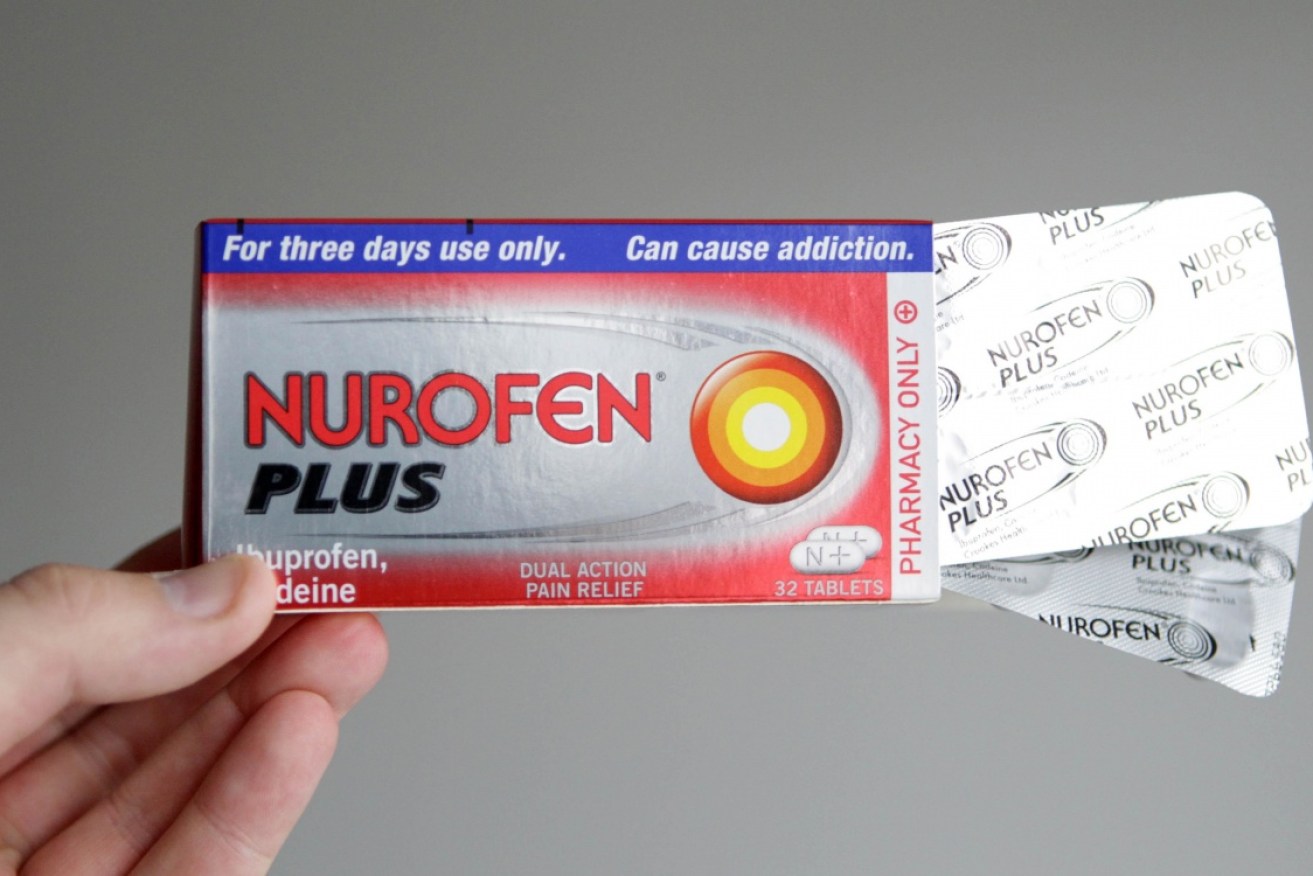Panadeine, Nurofen Plus could soon leave the shelves


Deadly and addictive, or just a regular in Australian shopping trolleys? Photo: AAP
Over-the-counter pain medications containing codeine will move to prescription-only if the Department of Health and Royal College of General Practitioners win an ongoing battle with pharmacists.
The disagreement first arose after the department’s Advisory Committee on Medicines Scheduling indicated it wanted to take medications such as Nurofen Plus off shelves last October, only to receive complaints from groups such as the Pharmacy Guild of Australia and Consumer Health Forum of Australia.
In light of the complaints, the department stalled the decision and commissioned a regulatory impact statement – the result of which will be handed down in coming weeks, according to the Herald Sun.
Bastion Seidel, president of the Royal College of General Practitioners, said doctors had been pushing to make “ineffective” and “addictive” codeine meds out of reach for years, and accused pharmacists of exercising a financial agenda.

Nurofen Plus is one of the medications facing changes. Photo: AAP
“It’s a $150 million market every year. They have a conflict of interest,” he told The New Daily, while the Pharmacy Guild claimed there were better and cheaper ways to monitor codeine abuse.
A Melbourne drug clinician told The New Daily that thanks to pharmacists, codeine did not have the addictive and deadly reputation it deserved.
‘Any drug of addiction should be managed by a GP’
Codeine, found in common pain medications such as Panadeine and Codral Original Cold and Flu, is an opioid used to treat moderate-to-severe pain.
Despite its availability over-the-counter in Australia, codeine is prescription-only in the USA, most of Europe, India and Japan.
This is because codeine is highly addictive, and according to President of the Royal College of Practitioners and practising GP Mr Seidel, not actually an effective painkiller in the longterm.
“Codeine should not be part of chronic pain management,” he argued, noting that 100 Australians die every year from the drug.
He said users slid into addiction quickly, and side effects included racing heart beat, dizziness and changes to blood pressure – making driving dangerous.
Joanna Macdougall, an alcohol and other drug clinician in Melbourne who has noticed a spike in codeine addiction in recent years, said most did not realise they were addicted until it was too late.

Ms Macdougall said her organisation received 50 calls every week from GPs being bullied by patients over prescription meds. Photo: Getty
“People think codeine is fine because it’s sold over-the-counter,” she said.
“They think, ‘well it must be good because the chemist said it was’. Every third TV ad now is plugging a new kind of anti-inflammatory or pain medication.”
Ms Macdougall said codeine addiction, which manifests in withdrawal symptoms such as sweats, tremors, migraines, mood swings and aggression, was not dissimilar from other opiate addictions such as heroin and morphine, and was often a gateway drug to others such as xanax and oxycontin.
She said pharmacies made too much money from over-the-counter Nurofen Plus to support the proposed changes.
“It’s their biggest seller,” she said.
“No one buys normal Panadol or Nurofen anymore if they can buy something that has ‘plus’ or ‘forte’ on the end of it.”
The problem is the cost: Pharmacy Guild
A spokesman for the Pharmacy Guild of Australia, which has rallied hard against the changes, said the cost of moving the drugs to prescription-only would outweigh the benefits.

“The only difference is doctors would be swiping Medicare cards and charging for consultations,” the spokesman said.
Citing a report by firm Cadence Economics, he said it would cost the government $316 million per year.
The guild is pushing instead for a system called MedsASSIST – currently being trialled at the Guild’s own cost – which tracks customers’ history and recommends those who make five or more purchases seek professional help.
“In many thousands of cases, this has resulted in sales being declined by pharmacists – hardly an indication of a profit motive,” he said.








